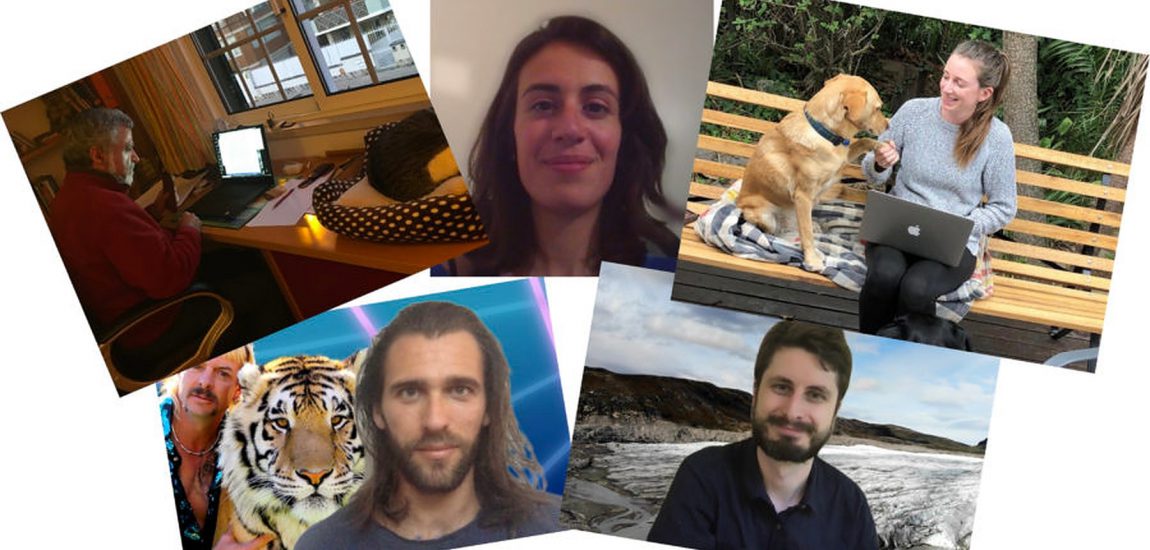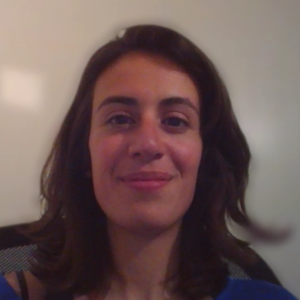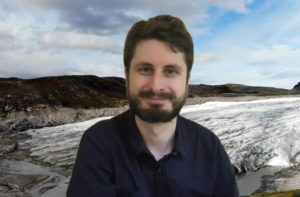
Geochemists in the time of COVID-19: part 2
In this new series on the EAG blogosphere, geochemists from around the world have been telling us about their experiences during this difficult period of the COVID-19 pandemic: how it has affected their academic and research activities, and how they have been adjusting to new ways of life.
In the posts below, James Bradley, and Jon Hawkings and Núria Catalán – two Marie Skłodowska-Curie Actions Global Fellows – describe their experiences.
James Bradley, Queen Mary University of London, UK

I am a new Lecturer (Assistant-Professor) in Environmental Sciences at Queen Mary University of London. As news of the (then) epidemic circulated in February, I was busy putting final logistics in place for a hectic schedule of Arctic fieldwork throughout the spring, as well as balancing research activities as a new PI, and undergraduate teaching. I was quietly hopeful that the spread of coronavirus would be contained and could not imagine the level of tragedy and disruption we are presently faced with.
The first major disruption to research plans came on 5th March in an email with the subject heading ‘Svalbard trip cancelled’. A seemingly premature (at the time) blanket travel ban issued by a collaborator’s institution meant that it would be impossible to go ahead with the first of four planned expeditions to carry out fieldwork in the Arctic – despite equipment already having been shipped, and arriving at 78°N. Nevertheless, the decision not to travel to Arctic regions in the time of global disease outbreak was absolutely necessary – given that Arctic communities are particularly vulnerable due to their isolation and limited healthcare.
Following this decision, other sampling trips were cancelled in quick succession. Then: a rapid transition to online teaching, hurried cancellation of other events and travel plans, and delays to enrollment for a new PhD student due to start in my group. All of a sudden, the busy research schedule I had intended for starting up my lab in a new institution had been put on hold. Amongst emergency project meetings and internal fire-fighting (Are our students safe? What is our new undergraduate course offering? What do we do with regard to student assessments?) from my make-shift bedroom-turned-office, I was aware but not acutely observant of the world shutting down. However, some weeks into the lockdown, I am settled into a slower pace of life. Frequent zoom meetings, long daily runs, and, of course, Netflix’s Tiger King. If you haven’t watched it yet – you’re in for a wild ride.
Núria Catalán - USGS Boulder, USA, & LSCE-CNRS, France
On the 10th March this year, my partner and I landed at Denver from Barcelona. We had had our tickets since December. Proclamation 9993 effective on March 13th suspended entry to foreign nationals having been in Spain during the 14 days prior to their travel to the U.S. so we made it into the country by only a couple of days. I was coming to the U.S. as a Marie Skłodowska-Curie Actions Global Fellow, planning to spend two years at the USGS Boulder, Colorado. Right now, I should be visiting the National Magnetic laboratory in Florida and collaborating with colleagues at Florida State University.
The reality is that I self-quarantined for two weeks upon arrival and, before I finished, everybody was told to telework. I have spent a grand total of one hour at the USGS and all the national laboratories in the U.S. are closed until further notice. Project-wise, I would say that quite a large part of it has needed to be re-defined with a new focus on database research that can be done anywhere. In that sense, it was good that the pandemic impacted the project at its start, since I get to make those changes early on. I am grateful the European Commission has shown flexibility for new fellowships and we are even allowed to go back to our home country while the COVID-19 pandemic continues (although we have not decided to do this so far).
The fact that I wasn’t integrated into any department when the shutdown was announced, is making it almost impossible to meet, get to know, interact and access the know-how of colleagues at the USGS. We meet online often with my supervisor here, who has just been excellent and really kind. However, I can’t help but struggle with the feeling of not being part of any institutional (and its social) environment which is such a key aim of the Global Fellowship in the first place.
On a personal note, we are managing to slowly settle into life in Boulder. However, job interviews that my partner had agreed upon before coming have all been cancelled and that also strongly impacts our situation both from a financial and social standpoint, adding some anxiety. Additionally, the medical insurance from my European guest institution was only set to start on April 1st . I had to take private insurance for March, but they failed to provide a clear answer to whether COVID19-related issues were covered. Luckily, we have been both healthy and, on the bright side, we are enjoying the experience of Colorado’s beautiful spring.

Jon Hawkings, Florida State University, USA & GFZ-Potsdam, Germany

The last two months have been a difficult and uncertain time for many. I feel like I should preface the following by saying that I am very fortunate to be in a better position than people who have lost their jobs, have been furloughed and/or are facing a more challenging future. I am a Marie Skłodowska-Curie Actions Global Fellow (European Commission funded) in my second year of three, with a joint appointment between GFZ-Potsdam (my host institution) and Florida State University (the partner institution). Currently, I’m due to return for my EU reintegration period in September.
There are two major issues that the COVID-19 pandemic has raised for me so far. First, and common to everyone in science, is disruption to schedule. For me, the main reason for my time in Florida is to make use of the unique facilities here. I’ve already had instrument time cancelled or moved, with little idea of when facilities will reopen for users. Given my visa expires in September I may miss out on sample analysis altogether. Second is the uncertainty over my reintegration period and the stress of being in a foreign country during a period of flux (i.e. being a “flexible” academic with no permanent home). I do not know how international travel will be affected over the next few months, nor do I know if flexibility will be given to “catch up” on lost research time (e.g. by extending my visa in the USA).
More generally and applicable to many early career researchers outside of secure positions, the COVID-19 pandemic has highlighted the issues involved with academic work at this career stage; lack of job security and worry about future funding avenues. It makes me anxious to think that economic crisis and associated tightening of government purse strings will amplify this problem over the next few years. However, I would be lying if I said this experience has been entirely negative. I am in a lucky enough position that I am able to work from home relatively undisturbed and have data to be written up into publications (which isn’t always the case), so forced time at my home desk (aka some cobbled together garden furniture) has been beneficial in this respect. This kind of writing time is hard to carve out during the usual busy day-to-day postdoctoral schedule of meetings, lab work, collaborations, supervision and next stage planning. I’ve also upped my sourdough game, which, although not beneficial career-wise, is tasty!
